A Classic Or a Failure?
While I haven’t written very many video game reviews, I could probably take any game I’ve ever played and assign it some kind of rating out of ten. Breath of the Wild? 10/10. Tomb Raider (2013)? 8/10. BioShock Infinite? 3/10. (Don’t @ me.)
The inherent value of a numbered review is largely up for debate, yet I still find myself assigning some digit to every game I play. The one exception? L.A. Noire, the Rockstar-published detective game from 2011 that has recently been re-released on Xbox One, PS4, and Switch. The game has the highest of highs and the lowest of lows, making it particularly difficult to evaluate scientifically. Is L.A. Noire a good game, a bad game, a good bad game, a bad good game, or something else entirely?
(Spoilers ahead.)

What is This Game?
L.A. Noire is a pseudo-open world adventure game where the player assumes the role of a detective in post-WWII Los Angeles. Protagonist Cole Phelps, who was previously a decorated USMC veteran of the War, advances through the ranks of the LAPD until the fact that he’s cheated on his wife forces his disgraceful demotion from the Vice department to Arson.
While investigating a housing development program for homecoming WWII veterans, he discovers that the program is a front meant to defraud the U.S. Federal Government. A series of crazy incidents related to the investigation ultimately leads to Phelps’ demise in his efforts to expose the fraudulent behavior. The story is riddled with moments that make the player question the legitimacy of being a police officer. Politics often play a factor in the decisions of the LAPD and the facts behind Phelps’ military record become murkier before, ultimately, being refuted.
If the main story seems largely convoluted (and a bit overwrought) to you, never fear! The majority of the gameplay involves Phelps’ attempts to solve a litany of individual cases, some of which are linked but many of which tell their own unique story. Each mission begins at the police department, where Phelps is briefed on what happened and then leaves with his partner to investigate the scene of the alleged crime. Once at the crime scene, the player is tasked with searching for clues, including any items left at the scene, any markings on corpses, or damages to cars and other structures.
In the course of the player’s investigations, Phelps will question a variety of suspects or persons of interest and, after a series of questions and navigating conversation trees, have the option to either believe these people, doubt them, or accuse them of lying (if you accuse someone of lying, you must submit evidence to prove it). In addition to the actual words of those being questioned, the player can try to look for visual cues, as the game’s motion capture can show people wincing, smiling, frowning, or just generally looking uncomfortable. After all the questioning, investigating, and arrests, the player either solves the case or bungles it, and is given a rating of 1-5 stars based on their performance in both interrogations and the search for clues.
The game utilizes open world mechanics, and has gunplay and cover mechanics similar to other Rockstar games of the previous console generation, such as Grand Theft Auto IV and Red Dead Redemption. Some missions result in shootouts, car chases, and on-foot chase downs, though the vast majority of the gameplay involves interrogations and searching for clues.
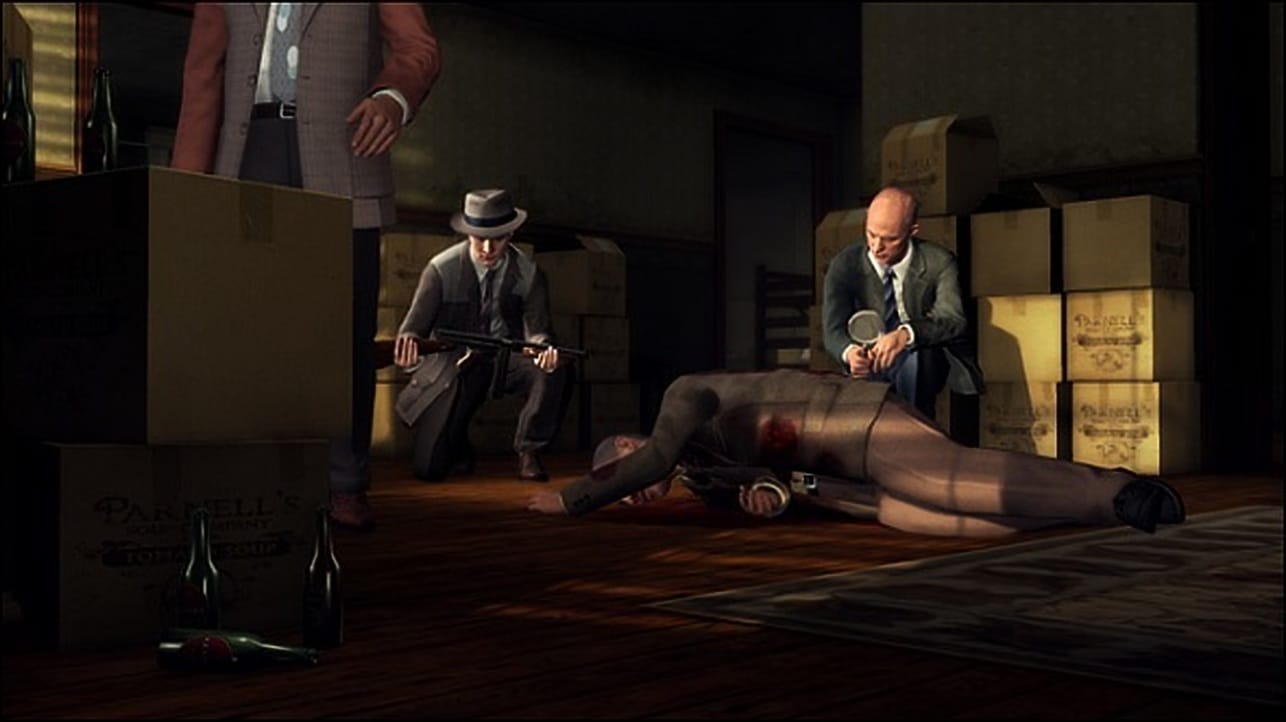
Why The Game is Great
L.A. Noire’s actual detective mechanics are excellent. Combing through a crime scene in search of a lipstick stain or bullet casing and having an “Aha!” moment afterwards is thrilling, even if the game holds your hand a bit with obvious noises whenever you’re close to something important. The game gives you time to appreciate the gravitas of the crime scene, letting you look at every single mangled part of a dead body as well as the sordid backdrop that accompanies a brutal strangling or morphine overdose.
In between every crime scene is a large open world displaying the early images of Hollywood, classic nuclear families, serene suburban areas, a sprawling metropolis, and anything else you’d expect to find in 1940’s L.A. The attention to detail found in every home, office, bar, and film studio is beyond reproach, with each point of interest having its own level of character and charm. Moreover, a phenomenal soundtrack with the orchestral ferocity found in a Hitchcock film adds to the intensity of each mission.
The game’s best interrogations are among the tensest experiences that games have to offer. Rockstar and developer Team Bondi presented a bleak, crime-ridden world in L.A. Noire, one where nobody can be trusted 100% at their word, so the collection of circumstantial clues and witness accounts are all you have to make a case against anyone. Each conversation, therefore, carries a distinct weight to it, with the player legitimately believing that anybody could be lying.
The game can be fairly daunting when it comes to making a case to arrest someone, as rarely does the answer seem abundantly clear. That kind of ambiguity works well thematically, as the title delves into motifs such as the importance of truth, the corruption of police departments, and the fundamentally faulty nature behind criminal investigations. Some cases have fairly clear suspects with clear motivations, but others present enough uncertainty that the player wonders if any part of this is legitimate.
This is where L.A. Noire’s story shines brightest. Despite the numerous examples of police illegitimacy presented in the story, Detective Phelps still acts professionally in the search for justice, even if justice isn’t always appropriately served. In my play-through of the game when it first came out in 2011, I never lost the desire to search through every nook and cranny for another piece of evidence or ask every possible question until I felt comfortable with the truth, regardless of the result. In short, I felt like a cop trying to be noble in the face of moral rot.
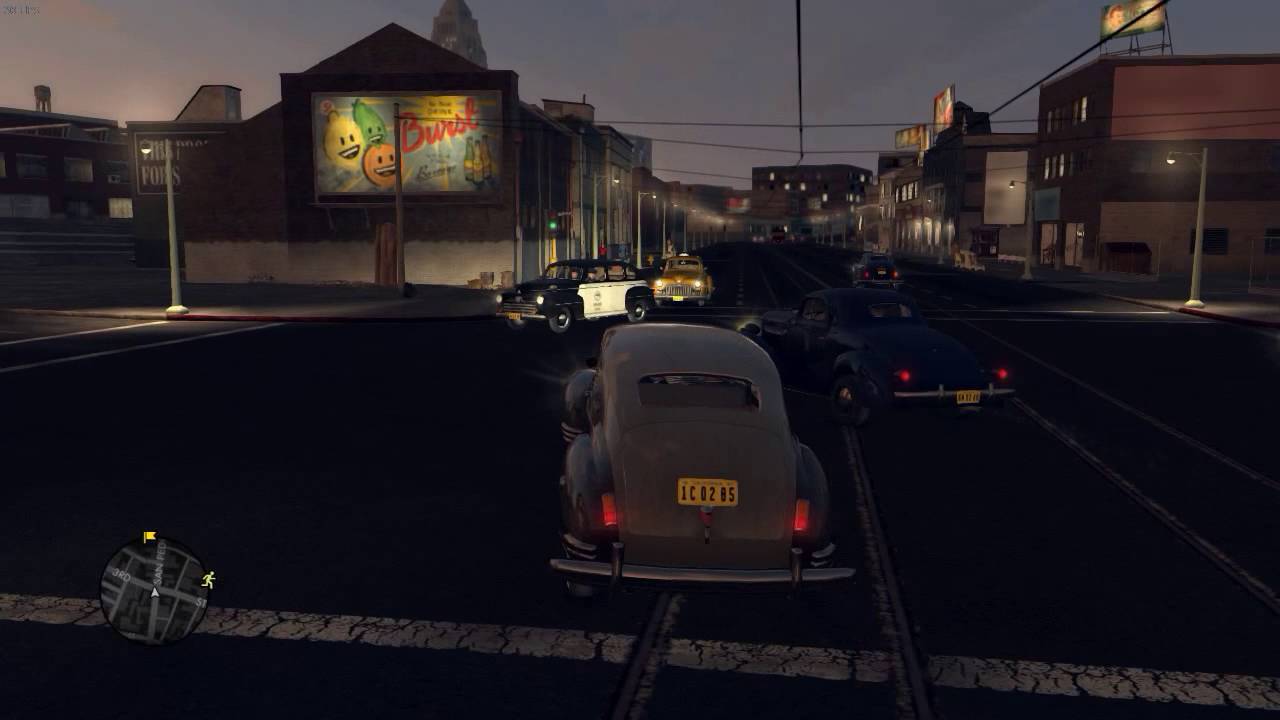
What Sucks
L.A. Noire’s greatest asset (its cool detective missions and storylines) is largely undercut by its empty overworld, which has about as much character to it as a block of American cheese. Sure, there are some discoveries to be made in this virtual 1940’s Los Angeles, but they’re largely filler, serving only the purpose of taking up space so that the game feels a little less linear. The driving controls are as smooth as you’d expect from a Rockstar game, but most of the in-game driving (when not tailing someone) seems sort of pointless from a gameplay perspective. Sure, Cole and his partner at any given time have some interesting banter during their brief road trips, but otherwise the driving just seems mundane, particularly given how lifeless most of the map is.
The on-foot controls are fairly seamless, and the shooting and cover mechanics are taken straight out of Grand Theft Auto IV and Red Dead Redemption, so they’re silky smooth. Still, whenever a shootout occurs (which, oddly for a Rockstar game, is rarely), the game almost seems too realistic: you can take out most guys with a shot or two, and then the whole experience ends in about a minute. While the quickness of each action sequence may have been an attempt at better immersion, they shatter any chance at it, as the aftermath of each is treated with the subtlety of a sledgehammer.
In addition, while the writing found in each mission is as stellar as anything Rockstar has ever done, the overarching plot teems with unnecessary twists and turns. Sure, Phelps is an interesting character with an interesting past, but having him die unceremoniously in the end almost seems trite, as if no other ending was possible (which, in my opinion, isn’t true). I understand that the developers wanted to frame the plot much like famous film noirs from the time, such as The Maltese Falcon or Double Indemnity, but they do so to a fault. The police are shown as untrustworthy almost immediately, female characters are written with little tact, and there are few (if any) moments where anyone in the game expresses even just a smidgen of joy, humor, or anything that isn’t gloom or surliness. Nearly every character comes off as a miserable, cynical prick.
More than anything, there are times when this game just seems incomplete. Some of the missions end somewhat abruptly (especially if you charge the wrong person), and the emptiness of the world makes me wonder if Rockstar had bigger plans for it that just never came to fruition. Also, L.A. Noire seems to completely lack decent post-game content (unless you want to replay certain cases), which is jarring considering how excellent the GTA games are after their main stories are completed.
The game also suffers from imbalance, both in terms of pacing and strength of mechanics. Each shootout seems too short, while every driving sequence feels too long. The early cases appear to have multiple story branches and outcomes, while the latter segments feel completely linear. What results is an experience where each hour differs in quality from the next, depending on the nature of each mission.
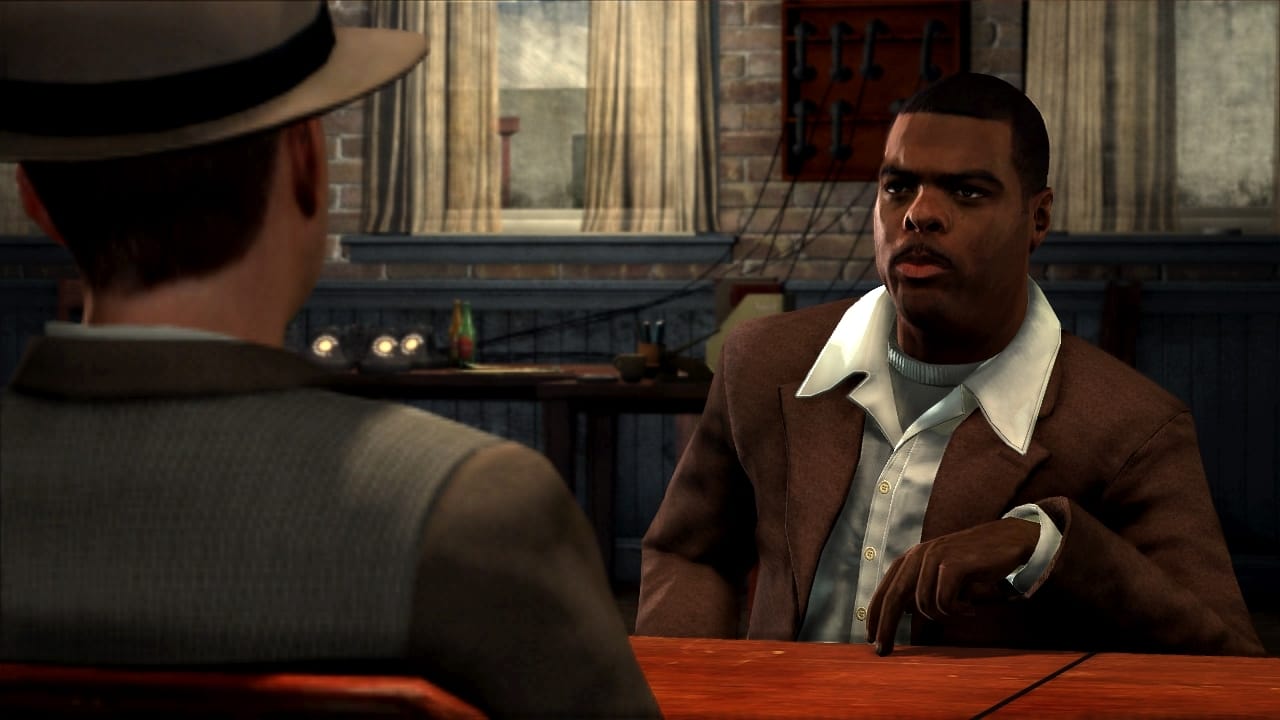
What to Make of it?
Gun to my head, I’d say L.A. Noire is closer to being a great game than being a terrible one, though that doesn’t mean its flaws can be overlooked. The game’s intriguing story structure and stellar detective mechanics don’t always make up for uneven pacing and seemingly pointless action sequences. But the tools are there for a classic — a dark detective thriller with the clever storytelling of point-and-click adventure games combined with the smooth action sequences of GTA — even if the end result has its warts.
I do hope, in general, that other developers learn the right lessons from L.A. Noire. The Witcher 3, for example, has similar detective-like moments, where Geralt (the main character) uses his “Witcher senses” to search areas for clues and then uses such information when speaking with others. If a game studio from Poland that’s only made high-fantasy RPGs can properly integrate such mechanics into a game with a lively open world and meaningful action sequences, surely others can do the same. Other series, including Phoenix Wright and Professor Layton, do their best to integrate proper interrogation mechanics into their storylines, and their continued successes should underscore the demand for investigative stories in video games.
I hope Rockstar revisits L.A. Noire, and hopefully another attempt will unlock the full potential of the original.
Sam has been playing video games since his earliest years and has been writing about them since 2016. He’s a big fan of Nintendo games and complaining about The Last of Us Part II. You either agree wholeheartedly with his opinions or despise them. There is no in between.
A lifelong New Yorker, Sam views gaming as far more than a silly little pastime, and hopes though critical analysis and in-depth reviews to better understand the medium's artistic merit.
Twitter: @sam_martinelli.








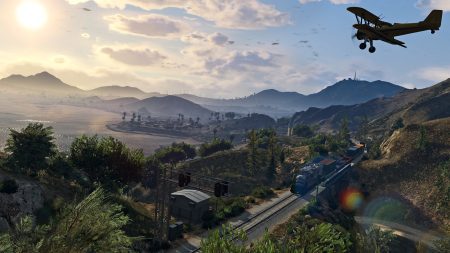
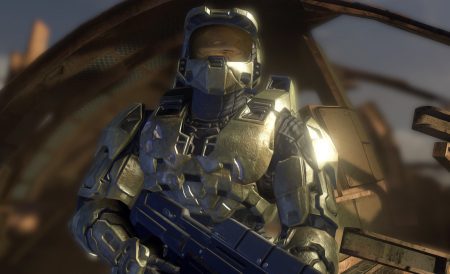

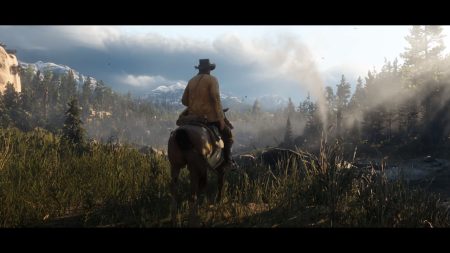
It is a great game I would say ???.